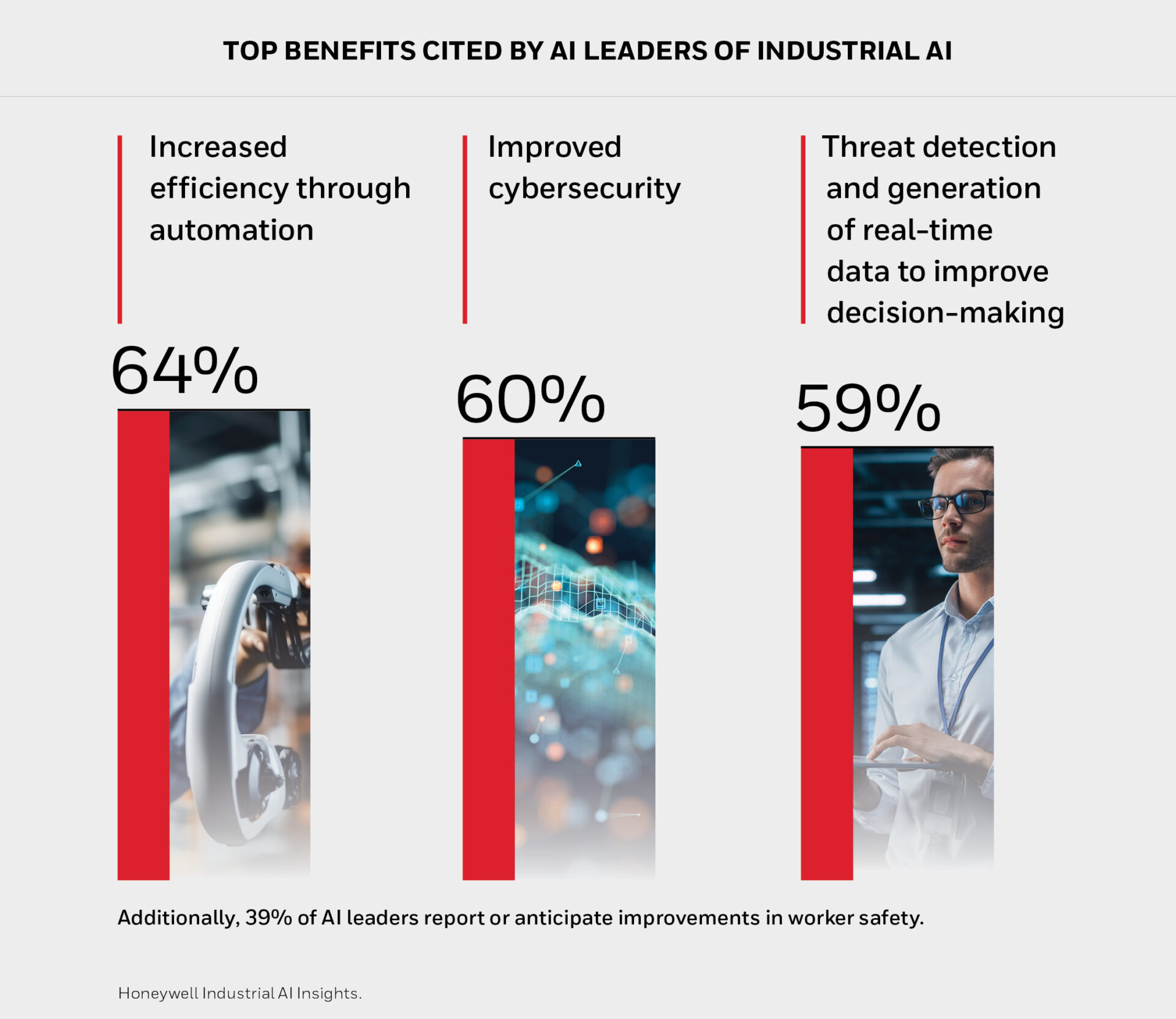A new global study by Honeywell reveals that the industrial sector’s adoption of artificial intelligence (AI) is gaining momentum, with a significant majority of companies uncovering new use cases for the technology.
AI Adoption Gains Traction, Yet Implementation Challenges Remain
While only 17% of global AI decision-makers have fully implemented their initial AI plans, over 90% are discovering unexpected applications during the prototyping, launch, or scaling stages. The research underscores a near-universal enthusiasm for further AI investment, with 94% of respondents intending to expand their AI utilization.
Indian Companies Embrace AI for Efficiency and Data-Driven Decisions
In India, 29% of companies have fully launched their AI strategy, and 27% consider data their most valuable asset. The research highlights that 79% of Indian enterprises see improved efficiency/productivity and data availability as the most promising AI use cases. Notably, 88% of Indian companies are willing to pay more to attract skilled AI engineers.
AI Transforms the Workplace with Diverse Benefits
When asked about the impact of AI on industrial sectors, 64% of AI leaders identified efficiency and productivity gains as the most promising benefits. Additionally, 60% reported improved cybersecurity and threat detection, while 59% cited better decision-making due to real-time data generation.
Other notable workplace benefits of AI include:
- Increased work flexibility (49%)
- Greater job satisfaction (45%)
- More time for skills development and creative thinking (44%)
- Increased workplace safety (39%)
AI Addresses Skills Shortages and Boosts Workforce Capabilities
AI plays a crucial role in upskilling and reskilling workers, addressing the challenges posed by retiring baby boomers and a shrinking workforce. By enabling employees to perform at higher levels, AI enhances job satisfaction, increases productivity, and tackles the skills shortage head-on.
Lucian Boldea, President and CEO of Honeywell Industrial Automation, emphasizes the transformative potential of AI in training and assisting technicians, leading to safer and more reliable plant operations.
The Path Forward for AI: Overcoming Barriers and Embracing Use Cases
While enthusiasm for AI expansion is evident, challenges remain. Over a third (37%) of respondents feel their C-suite lacks a full understanding of AI, and nearly half (48%) struggle to justify or secure resources for AI implementation.
Despite these hurdles, the future of AI in industrial settings looks bright. The pace of adoption will be driven by compelling use cases that demonstrate tangible improvements in business performance, workforce productivity, safety, and reliability.



















